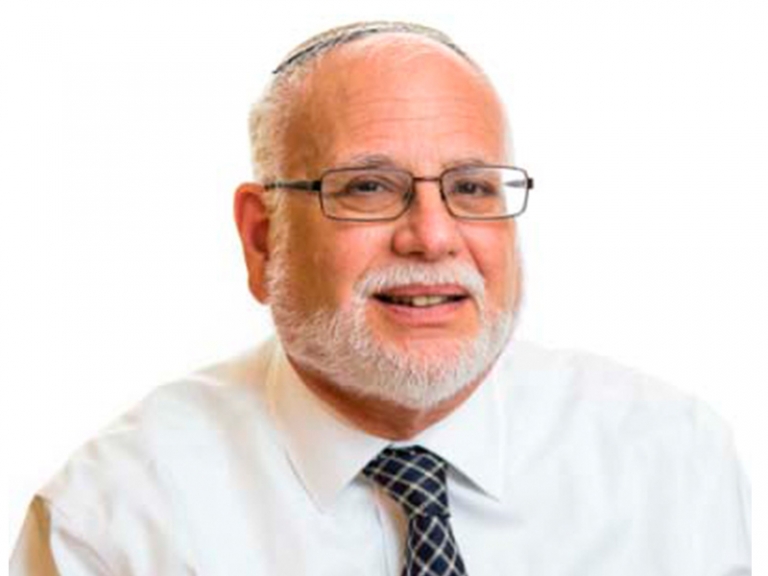D'var Torah by Dr. Kalman Stein, Head of School

Dear Hebrew Academy Community:
The conclusion of this week’s Parasha is somewhat difficult to understand. God commands Moshe to “ascend to Hashem.” Moshe gathers the people and tells them “all the words of God and all of the statutes,” whereupon the people respond, “We will do— --נעשהall that Hashem has said.” The next morning Moshe builds an altar and sprinkles sacrificial blood on the altar and the other half on the people. He reads ספר הברית--the Book of the Covenant—to the people and this time they respond
כל אשר דבר ה" נעשה ונשמע
"We will do and obey all that Hashem has spoken."
Moshe again is commanded to “ascend the mountain to Me and remain there. And I will give you the stone tablets and the teaching and Mitzvot that I have written to teach them.”
What’s going on here? Hadn’t the Revelation at Sinai, Matan Torah, already taken place as we read in last week’s Parasha. The commentators disagree. Rashi, who believes that the narrative of the Torah is not necessarily placed in chronological order, argues that this piece of the story occurred before Matan Torah. The דברי ה" which Moshe repeated to the people were God’s instructions to stay away from the mountain. The statutes he spoke about were the seven Noahide Mitzvot and a few Mitzvot, such as Shabbat, which were given before they had reached Har Sinai. And the Book of the Covenant was the Torah from Breishit to the preparations for Matan Torah. Thus, according to Rashi, Bnai Yisrael’s resounding
כל אשר דבר ה" נעשה ונשמע
was proclaimed before they had received the Torah.
Ramban, however, believes that almost all of the biblical narrative is in proper chronological order. Therefore, he argues that on the day after Matan Torah Moshe came down from the mountain, read the Torah he had just written to the people, entered them into a Covenant with God, and then was called by God to ascend to Him once again. “We will hear and we will obey,” therefore, took place after Bnai Yisrael knew exactly what they were agreeing to obey.
Rabbi Bini Krausz, in Sefer Shabbat MiTzion, suggests that at the core of this chronological argument is a difference in philosophy. Ramban would assert that one cannot take responsibility without knowing exactly what that responsibility is; one cannot sign a contract or enter into a covenant without knowing the details. כל אשר דבר ה" נעשה ונשמע, therefore, makes sense only if it was proclaimed after the Torah had been given.
Rashi, however, believes that the essence of a covenant is unconditional acceptance of the relationship it creates: the details are not all that important. Bnai Yisrael were eager to enter into an eternal relationship with Hashem; they were willing to wait to hear the details later in perfect faith that they would happily meet Hashem’s demands.
Rabbi Krausz posits that perhaps this chronological ambiguity demonstrates that there is more than one way to connect with God, even that different paths might be best for the same person at different stages of life. For some, the connection to God is an unconditional one which leads to deeper study and understanding. Others find that they need to study and understand what that connection is all about before they can internalize it and base their lives on that covenantal relationship.
Jewish parents and Jewish schools need to nurture both the soul and the mind. We address the heart and soul and help our children develop a relationship with HaKadosh Baruch Hu by creating a warm, welcoming religious atmosphere at home and school, by presenting our children with role models of piety, integrity and kindness, and with informal, experiential educational programs such as Chagigot and Shabbatonim.
When we address our children’s minds we must do so with intellectual rigor and honesty. Rabbi Akiva asserts (Eruvin 54b) that the unusual use of the words “place before them,” rather than the expected “teach them” in ואלה המשפטים אשר תשים לפניהם –And these are the laws which you should place before them—indicates that a teacher (or parent) is expected to make certain that each student clearly understands the reasoning behind that which is being taught. When an inquisitive child asks “Why?” it is not acceptable, explains Rashi, to respond, “That is what I was told; try to figure out the reasoning on your own.” Of course, students should be challenged to think through issues and arrive at understanding but it is the teacher’s responsibility to make sure that at the end of the process every student has achieved real understanding.
Shabbat Shalom,
Dr. Kalman Stein
Head of School

